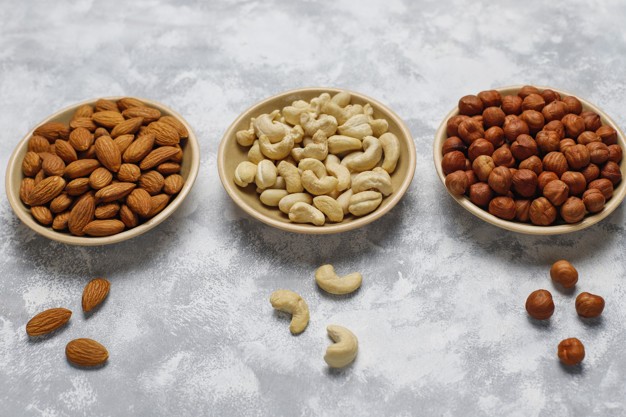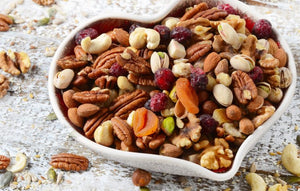
The cold weather makes it suitable for people to eat nuts in winter without getting internal heat. Most nuts can nourish and strengthen the kidneys, brain, and heart. In addition, eating nuts in winter helps keep warm and improve physical quality.
Dry fruits are not just delicacies but are powerhouses of nutrition. Packed with proteins, essential fatty acids, antioxidants and minerals; these are little factories of good health.
Eating Dry Fruits and nuts as a part of a healthy diet could also be good for your heart. Nuts contain unsaturated fatty acids and different nutrients.
Following nuts are helpful for heart patients during winters:
ALMONDS
Almonds challenge this oxymoron perfectly well. It’s rich in monounsaturated fatty acids that have a heart-protective role. Almonds are also rich in Vitamin E, magnesium and potassium, all of which go hand in hand to maintain normal blood pressure, improve blood circulation and maintain healthy heart function.
WALNUTS
Walnuts are excellent sources of Vitamin E in a form that is unusual to find ¬ gamma-tocopherol. It has a major cardioprotective role.
Pistachios
Pistachios help in reducing bad cholesterol, LDL and increases good cholesterol, HDL in the body thus preventing heart diseases.
Cashew
Cashews are one of the lowest-fiber, highest carbohydrate nuts, they’re packed with vitamins, minerals, and antioxidants. Cashew is best to prevent heart disease. This may occur by reducing blood pressure and cholesterol levels.
Hazelnuts
These buttery nuts are full of protein and fiber. They are rich in potassium, calcium and magnesium – minerals that help in regulating healthy blood pressure. They are also rich in heart-healthy oleic acid which is known to lower bad cholesterol levels and raise good cholesterol levels.


